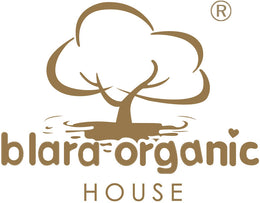Our Fabrics
We aim for you to cherish your garments for an extended period. Selecting durable fabrics crafted from high-quality fibers forms the foundation of what we strive for.
Here are the types of fabrics we use to produce our apparels, accessories, and beddings

Organic Cotton
👚
Organic Cotton is grown using methods and materials that are healthier and safer for everyone involved— especially the Earth.
Our cotton isn’t just organic — it’s Global Organic Textile Standard (GOTS) certified! GOTS independently verifies each step of the production process to guarantee the organic traceability and ecology of everything involved. From harvesting raw materials to environmentally and socially responsible manufacturing processes, GOTS-certified goods are the gold standard for organics. By choosing our GOTS-certified fabrics, you’re investing in your and your families' comfort and promoting a healthier environment through chemical-free and sustainable cotton cultivation.
This fabric offers exceptional stretch, breathability, and durability. Its plush softness ensures comfort, while the high spandex content allows unrestricted movement—ideal for active activities. These fabrics are easy to care for, resist wrinkles, and maintain their vibrant colors even after numerous washes. Their hypoallergenic properties make them an excellent choice for people with sensitive skin.

Linen
🛏️
Linen is a flax-based textile that is predominantly used for homeware applications. While linen is similar to cotton, it is made from fibers derived from the stems of the flax plant instead of the bolls that grow around cotton seeds. Linen is a popular material known for its quality and versatility. Overheating is one of the reasons that many people have trouble getting good quality sleep, especially during the hotter months of the year. One major benefit of linen is its cooling effect, this makes linen a popular choice for bed sheets, as it can help avoid overheating. The other advantage of linen in bedding is this textile’s durability; it’s possible to achieve higher thread counts in linen than in cotton without encountering durability issues. Linen is one of the least environmentally damaging textiles. Unlike synthetic textiles, natural fabrics like linen are biodegradable, which means that their constituent molecules reabsorb into the surrounding environment within a matter of years instead of centuries.

Modal
🏠
TENCEL™ Modal fibers are extracted from naturally grown beech wood by an environmentally responsible integrated pulp-to-fiber process, which is self-sufficient in energy and recovers co-products from component parts of the wood*. This flexible fiber is renowned for its exceptional softness.
Composed of natural material, all TENCEL™ standard Modal fibers are biodegradable and compostable under industrial, home, soil and marine conditions, thus they can fully revert back to nature.
Exhibiting high flexibility, TENCEL™ Modal wood-based fibers offer textiles a long-lasting quality of exquisite softness. Owing to the fiber’s sleek cross-section, TENCEL™ Modal fibers enhance the soft touch of fabrics even after repeated washing. Measurements and hand evaluations of softness show that TENCEL™ Modal fibers feel twice as soft as cotton. The softness of TENCEL™ Modal fibers lasts longer and is able to withstand repeated wash and dry cycles compared to cotton.




